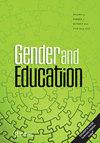主权女性:为什么是学术界?一次收集语言礼物和心灵果实的旅程
IF 1.9
3区 教育学
Q2 EDUCATION & EDUCATIONAL RESEARCH
引用次数: 1
摘要
随着越来越多的高等教育机构寻求在人员配备、出版物和学生人数方面增加土著代表性,本文考虑了在殖民背景下利用和体现土著和讲故事研究实践的关键方法过程、问题和挑战。本文讨论了新媒体和社交媒体作为文化实践平台的价值,以及它在招募参与者和传播研究成果方面的潜力。这些都是作者作为一名土著女学者与土著女学者一起研究的经验所得。作为内部人员/外部人员访问、与之合作并向其报告时,所提出的问题和责任与观察和制定适当的社区协议有关。总体而言,研究发现,在这些系统中有意识地通过研究和写作实践来集中土著故事和主权,可能会被非土著学者接受或认为是“令人不快的”和/或一种挑战,但对这位研究人员来说,这是土著实践的必要表现。本文章由计算机程序翻译,如有差异,请以英文原文为准。
Sovereign women: why academia? A journey gathering word-gifts and heart berries
ABSTRACT With the rise of Higher Education institutions seeking increased Indigenous representation within staffing, publications, and student numbers, this article considers key methodological processes, issues, and challenges associated with utilizing and embodying Indigenous and Storytelling research practises within colonial contexts. The value of new and social media as platform for cultural practise, and its potential for participant recruitment and findings dissemination is discussed. These are drawn from the author’s experience as an Indigenous academic woman researching with Indigenous academic women. Issues and responsibilities raised related to observing and developing appropriate community protocols when accessing, working with, and reporting from this group as an insider/outsider. Overall, it was found that consciously working to centre Indigenous Storying and sovereignty through research and writing practices within these systems may be received or perceived as ‘unpalatable’ and/or a challenge by non-indigenous academics but is a necessary manifestation of Indigenous practise for this researcher.
求助全文
通过发布文献求助,成功后即可免费获取论文全文。
去求助
来源期刊

Gender and Education
EDUCATION & EDUCATIONAL RESEARCH-
CiteScore
5.20
自引率
9.10%
发文量
31
期刊介绍:
Gender and Education grew out of feminist politics and a social justice agenda and is committed to developing multi-disciplinary and critical discussions of gender and education. The journal is particularly interested in the place of gender in relation to other key differences and seeks to further feminist knowledge, philosophies, theory, action and debate. The Editors are actively committed to making the journal an interactive platform that includes global perspectives on education, gender and culture. Submissions to the journal should examine and theorize the interrelated experiences of gendered subjects including women, girls, men, boys, and gender-diverse individuals. Papers should consider how gender shapes and is shaped by other social, cultural, discursive, affective and material dimensions of difference. Gender and Education expects articles to engage in feminist debate, to draw upon a range of theoretical frameworks and to go beyond simple descriptions. Education is interpreted in a broad sense to cover both formal and informal aspects, including pre-school, primary, and secondary education; families and youth cultures inside and outside schools; adult, community, further and higher education; vocational education and training; media education; and parental education.
 求助内容:
求助内容: 应助结果提醒方式:
应助结果提醒方式:


